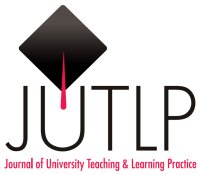Humanising Peer Review with Artificial Intelligence : Paradox or Panacea?
The emergence of artificial intelligence in the higher education publishing context has led to scholars seeking opportunities to leverage the new technological affordances offered by the tool. Yet, there have been questions emerging about the extent to which artificial intelligence should prompt sch...
| Institutions: | University of Tasmania Monash University University of Queensland |
|---|---|
| Auteurs principaux: | , , |
| Publié: |
Journal of University Teaching & Learning Practice v.21 n.1 https://doi.org/10.53761/xeqvhc70
2024
|
| Sujets: | |
| Accès en ligne: | https://doi.org/10.53761/xeqvhc70 |
| Résumé: | The emergence of artificial intelligence in the higher education publishing context has led to scholars seeking opportunities to leverage the new technological affordances offered by the tool. Yet, there have been questions emerging about the extent to which artificial intelligence should prompt scholars towards certain outcomes. In this commentary, we examine the need for human flourishing to sit at the forefront of decisions around academic publishing alongside the pursuit of fair and innovative knowledge creation and dissemination. We advocate an evidence-based position against artificial intelligence as a peer reviewer, recognising that parroting knowledge is insufficient to be critical and comprehensive in the review process. There are significant limitations to the current artificial intelligence tools from bias to current corpus limitations that restrict its usefulness as a gatekeeper of knowledge, a key role a reviewer takes on board. We offer suggestions for places where artificial intelligence tools may be quite useful and offer some future directions for artificial intelligence in publishing processes. [Author abstract] |
|---|---|
| ISBN: |


